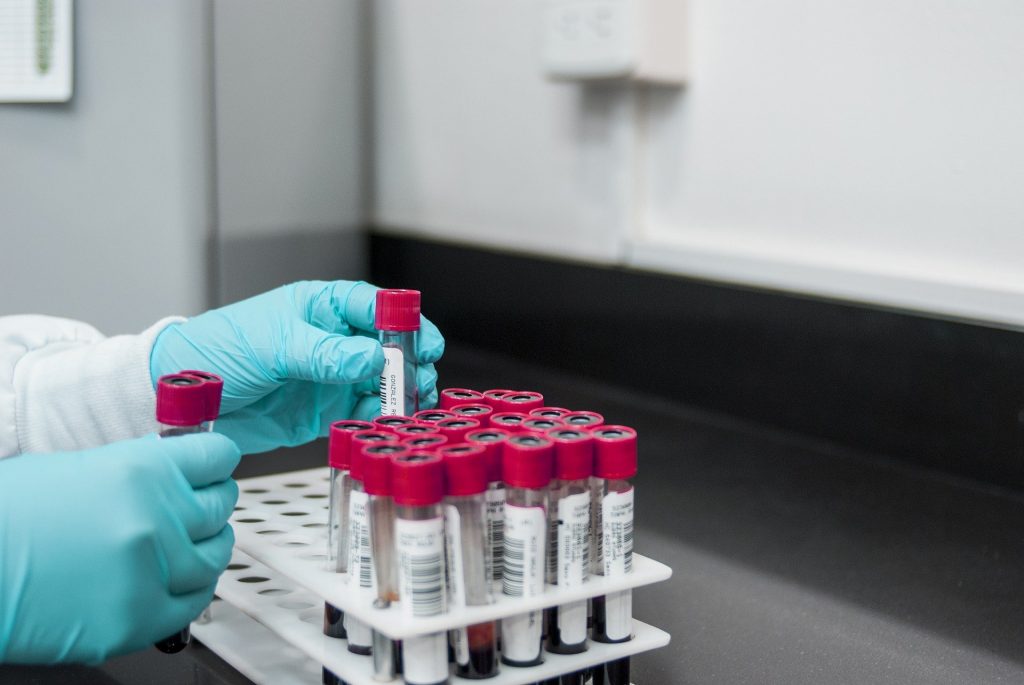
Thyroid hormones are among the elements that can be evaluated with a blood test.
In this way, thyroid hormonal tests allow evaluating the functioning of the thyroid, a gland located below the larynx and in front of the trachea, which produces hormones that are crucial in controlling metabolism.
What are thyroid hormones?
Thyroid hormones are hormonal substances that modulate metabolism and have a direct impact on caloric expenditure and a multitude of associated factors, such as weight gain, etc.
Blood tests usually measure T 3 (triiodothyronine) and T 4 (thyroxine) levels. Most of these thyroid hormones circulate in the blood bound to transporter proteins. Only a fraction circulates autonomously, the free fraction. It is this free fraction that acts on the tissues and organs of the body.
The function of the thyroid gland
As with other endocrine glands in the body, the functioning of the thyroid gland is regulated by the pituitary gland, a gland located below the brain, which produces the thyroid-stimulating hormone (better known by its acronym, TSH ).
When the thyroid produces few hormones, the pituitary makes more TSH stimulate its function. Conversely, when the thyroid produces an excessive amount of hormones, the pituitary gland releases less TSH. This mode of regulation or feedback is characteristic of hormonal systems. Knowing the levels of thyroid hormones and TSH allows, in this way, to have a fairly approximate idea of the functioning of the thyroid gland.
Thyroid hormone levels
Levels of total T 3 between 70 and 190 ng / dL (nanograms / deciliter) and of total T 4 between 5 and 12 µg / dL (micrograms / deciliter) are considered normal .
Hyperthyroidism
When thyroid hormones are produced in excessive quantity, hyperthyroidism appears. Thus, the analysis will show elevated levels of thyroid hormones.
Hyperthyroidism is characterized by an acceleration of metabolism. Possible causes include Graves’ disease (autoimmune disease), hyperfunctioning thyroid nodules, and thyroiditis (inflammatory thyroid diseases).
Hypothyroidism
On the contrary, when thyroid hormones are produced in insufficient quantity, hypothyroidism occurs.
Low levels of thyroid hormones are characterized by a decrease in metabolism. It may be due, for example, to Hashimoto’s thyroiditis (autoimmune disease), or injury to the thyroid from surgery or radiation therapy. Globally, the leading cause of hypothyroidism is severe iodine deficiency, but in developed countries it is rare.
Epidemiology of hypothyroidism and hyperthyroidism
At a global level, some estimates indicate a prevalence of hyperthyroidism that ranges from 0.2% to 1.3% of the population, in regions not deficient in iodine consumption. Similarly, the prevalence of hypothyroidism is estimated to be around 1-2%.
High TSH
Normal TSH values range from 0.4 to 5 mIU / L (international milliunits / liter). An elevation of TSH will indicate that there is primary hypothyroidism, in which the thyroid gland does not manufacture enough hormones, so the pituitary gland produces an excess of TSH to reverse this situation.
On the contrary, a decrease in TSH will be the expression of primary hyperthyroidism.
However, altered TSH values must be interpreted in conjunction with thyroid hormones and the context of the individual patient.
Alteration of the pituitary gland
Although less frequently, an alteration in the functioning of the pituitary gland can occur, in which case the thyroid hormones will vary in parallel with TSH.
On the other hand, certain physiological situations or treatments with some medications may slightly alter the plasma levels of these hormones without necessarily signifying the presence of disease.
Thyroid antibodies
A final test that can be performed to thyroid function is the measurement of so-called antithyroid antibodies, which the body itself manufactures against the thyroid gland in the case of autoimmune diseases.
This is a different type of analysis than hormones. The presence of these antibodies can indicate an autoimmune disease, such as Graves’ disease or Hashimoto’s thyroiditis.






